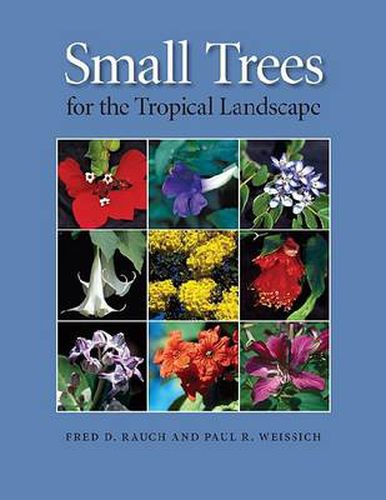Readings Newsletter
Become a Readings Member to make your shopping experience even easier.
Sign in or sign up for free!
You’re not far away from qualifying for FREE standard shipping within Australia
You’ve qualified for FREE standard shipping within Australia
The cart is loading…






Over the past several decades, the U.S. cityscape has changed radically. Large areas have been cleared of natural vegetation to accommodate new development. The ‘urban forest’, which consists of all city trees, natural and planted, has been severely and negatively impacted. A 2003 study indicates that we are losing through clearing and grading four trees for every one planted. This is a wake-up call for greatly increased planting in the urban forest and the need to popularize small trees (defined as trees that grow up to thirty feet high) for diminished city spaces.
Small Trees for the Tropical Landscape
describes and illustrates 129 species and subspecies and 48 named varieties, cultivars, and forms plus 23 hybrids appropriate for the home garden and confined public landscape spaces. The authors have also included a section on ‘Tailored Small Trees’, large shrubs that are readily transformed into small trees through intelligent, selective pruning. They identify and describe 67 species and subspecies; 40 named varieties, cultivars, and forms; and 21 hybrids that are appropriate for this conversion. Several appendices will assist the gardener with tree selection for specific purposes (screens and windbreaks, coastal gardens, edible fruit, and colorful flowers and foliage). Species that may cause skin irritation or that are poisonous are identified in the text as are those trees with the ability to fix nitrogen. The authors also warn against planting a number of species known to be invasive in Hawai'i and advise caution when planting others that have the potential to escape cultivation and become weeds.
$9.00 standard shipping within Australia
FREE standard shipping within Australia for orders over $100.00
Express & International shipping calculated at checkout
Over the past several decades, the U.S. cityscape has changed radically. Large areas have been cleared of natural vegetation to accommodate new development. The ‘urban forest’, which consists of all city trees, natural and planted, has been severely and negatively impacted. A 2003 study indicates that we are losing through clearing and grading four trees for every one planted. This is a wake-up call for greatly increased planting in the urban forest and the need to popularize small trees (defined as trees that grow up to thirty feet high) for diminished city spaces.
Small Trees for the Tropical Landscape
describes and illustrates 129 species and subspecies and 48 named varieties, cultivars, and forms plus 23 hybrids appropriate for the home garden and confined public landscape spaces. The authors have also included a section on ‘Tailored Small Trees’, large shrubs that are readily transformed into small trees through intelligent, selective pruning. They identify and describe 67 species and subspecies; 40 named varieties, cultivars, and forms; and 21 hybrids that are appropriate for this conversion. Several appendices will assist the gardener with tree selection for specific purposes (screens and windbreaks, coastal gardens, edible fruit, and colorful flowers and foliage). Species that may cause skin irritation or that are poisonous are identified in the text as are those trees with the ability to fix nitrogen. The authors also warn against planting a number of species known to be invasive in Hawai'i and advise caution when planting others that have the potential to escape cultivation and become weeds.